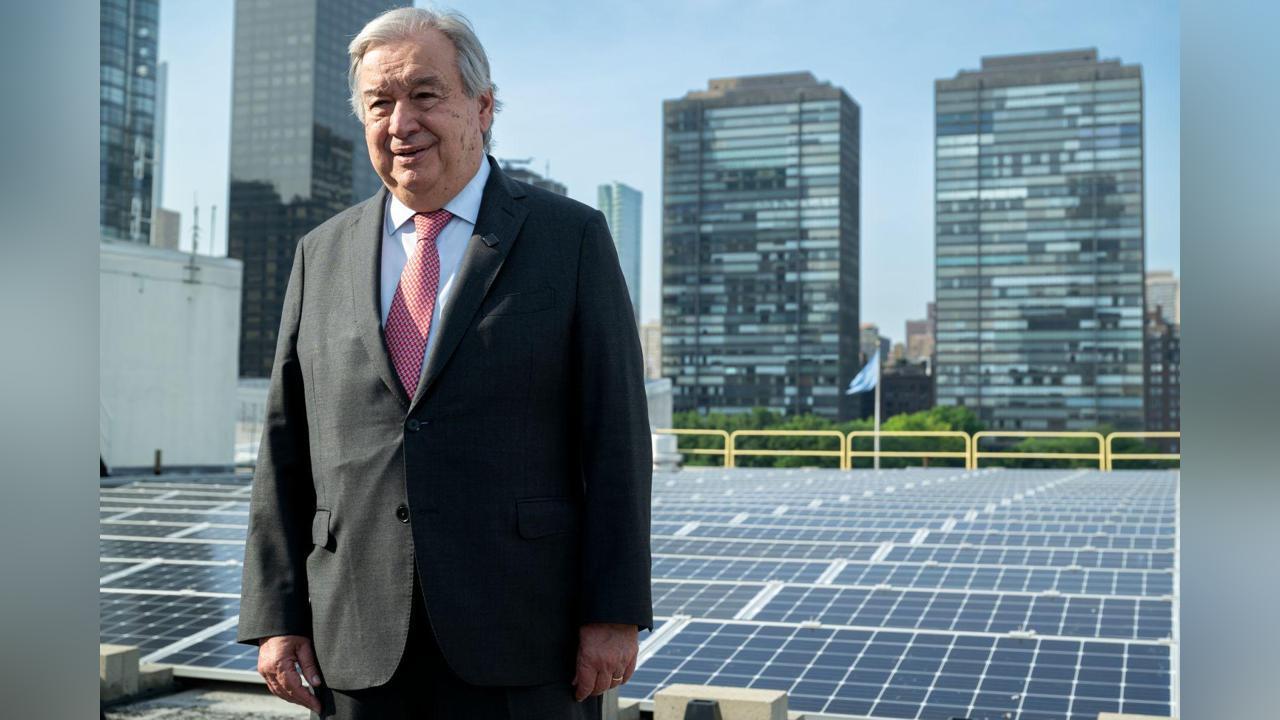Africa-Press – Ethiopia. UN Secretary‐General António Guterres declared the world has “passed the point of no return” on the shift to renewables and implored governments to file sweeping new climate plans before November’s COP30 climate summit in Brazil, saying the fossil fuel era is nearing its end.
In a special address delivered at the UN Headquarters in connection with the economic imperative and opportunity for transition to renewable energy, the Secretary General highlighted the unprecedented opportunities that lie within the renewable energy sector.
The speech, A Moment of Opportunity: Supercharging the Clean Energy Age – a follow‐up to last year’s Moment of Truth – was delivered alongside a new UN technical report drawing on global energy and finance bodies.
“Just follow the money,” Guterres said, noting that 2 trillion USD flowed into clean energy last year, 800 billion USD more than fossil fuels and up almost 70 per cent in a decade.
Investing in clean energy could create millions of jobs, stimulate economic growth, and help combat climate change more effectively, he noted.
“The fossil fuel age is flailing and falling,” Guterres said. “We are in the dawn of a new energy era”.
He noted new data from the International Renewable Energy Agency showing solar, once four times costlier, is now 41 per cent cheaper than fossil fuels.
Similarly, offshore wind is 53 per cent cheaper, with more than 90 per cent of new renewables worldwide beating the cheapest new fossil alternative.
“This is not just a shift in power. It is a shift in possibility,” he said.
The time for action is now to shape a sustainable future, Guterres stated, urging nations to embrace renewable technologies as means to achieve energy security and resilience, particularly in the face of rising global energy prices and geopolitical tensions.
According to him, the transition to renewable energy is not just an environmental necessity but a significant economic opportunity that can drive innovation and growth.
The Secretary General also emphasized the need for international cooperation, calling on governments, businesses, and civil society to work together to accelerate the transition.
A collective shift towards a more sustainable and equitable energy future is crucial.
Furthermore, he outlined several key strategies, including increased investment in renewable infrastructure and innovative financing mechanisms in clean technologies.
He urged countries to lock ambition into the next round of national climate plans, or NDCs, due within months. Guterres called on the G20 countries, which are responsible for 80 per cent of emissions, to submit new plans aligned with the 1.5°C limit and present them at a high‐level event in September.
Finally, the Secretary General urged all stakeholders to seize this moment of opportunity, reinforcing the idea that a sustainable future is not only desirable but achievable through decisive action and collaboration.
For More News And Analysis About Ethiopia Follow Africa-Press






